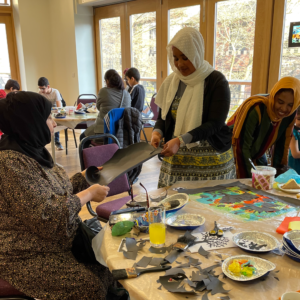The Wharfedale Foundation is a grant-making charity funding community projects in Yorkshire and the Humber. Founded in 2009 with the proceeds of the sale of Scargill House in Kettlewell, North Yorkshire, its primary aim is to help the most disadvantaged and marginalised groups in society. We fund organisations and initiatives in Yorkshire and the Humber that bring communities together, support communities who feel marginalised and forgotten, or build bridges between communities.
Funding programme for 2024/25
We fund organisations with an annual income that is at or below £300,000. For organisations with an annual income of under £150,000 grants are from £500 up to £10,000. For organisations with an annual income of £150,000 to £300,000, grants are for up to £25,000.
For more details about the types of organisations and projects we support see What We Fund. To find out how to apply see Apply for Funding.
2024
Applications were considered in 2024 over 2 rounds which have now been completed with a total of over £740,500 awarded to charities and not-for-profit organisations across Yorkshire and Humber. See the numbers here.
2025
We are now closed to Expressions of Interest for the September 2025 funding round. Selected organisations will be invited to submit full applications by 1 August 2025 for consideration at the Trustee’s meeting in September.



How we’re helping
We are a grant-awarding trust funding projects in Yorkshire and the Humber. Our aims are the breaking down of barriers in society, the integration of marginalised groups in communities and tackling disadvantage. We have an interest in interfaith dialogue, social cohesion, exclusion and environmental sustainability and a focus on grassroots and youth-oriented projects.
Project funding
We support initiatives that bring people together to gain understanding of other faiths and cultures and to work in partnership to improve the neighbourhoods in which they live. We aim to fund projects that address the divisions in our society by developing greater understanding of social justice and diversity.
Core and development funding
We will fund core and development costs (including staff salaries, training, pilot projects, on-going services etc.) and are particularly keen to support organisations to be more sustainable.
OUR AIMS
Hover your mouse over the images below to read more
down
barriers
marginalised
groups
disadvantage
